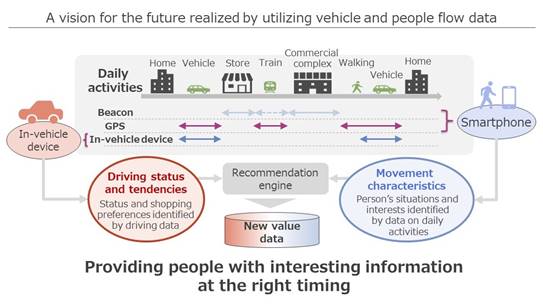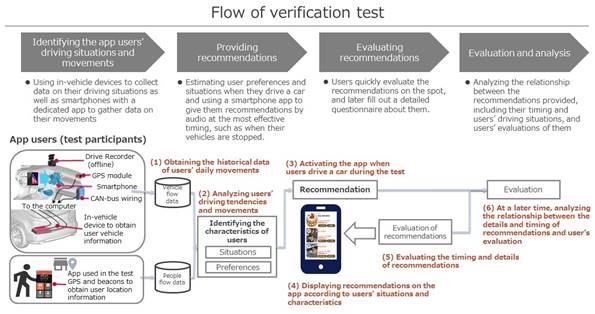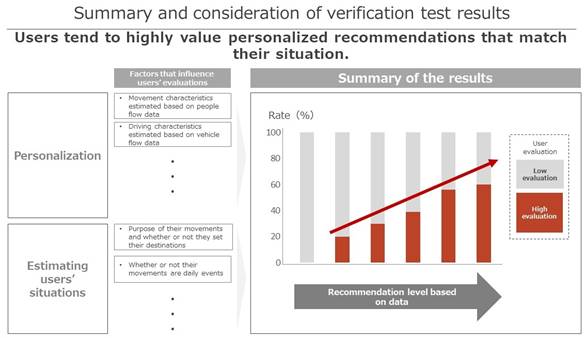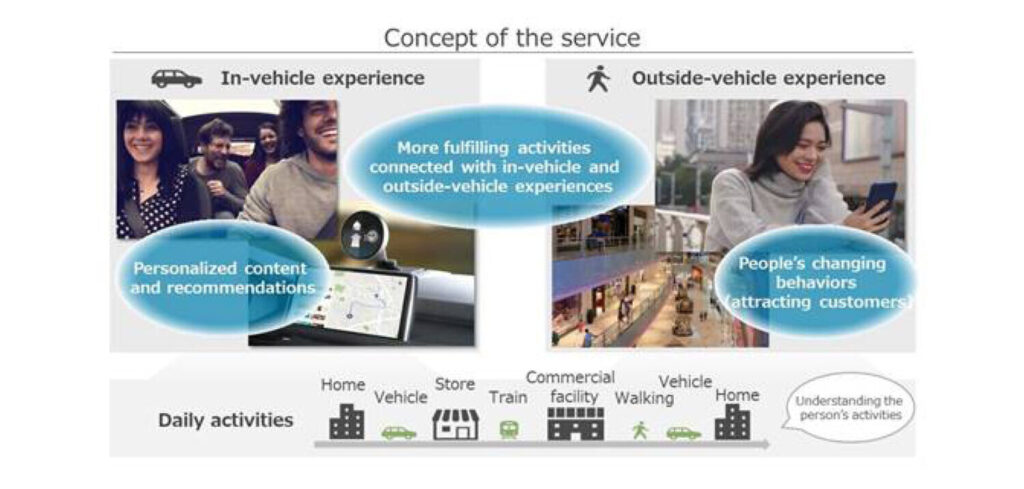Japanese electronics manufacturer Denso and Tokyo-headquartered NTT Data have completed a joint verification test intended to improve mobility experiences using data on vehicle and people flows.
During the test, which spanned June 2020 to March 2021, the companies gathered participants’ vehicle flow data – effectively a log of their movements by car – through in-vehicle devices and people flow data, using smartphone GPS and beacon detection logs. Together, this data offered insights into participants’ driving characteristics and the types of driving scenarios they encountered.
The test was conducted to assess whether it was possible to provide improved mobility experiences and services, and to help businesses attract potential customers amid changing consumer behaviors. To do this, the test analyzed the participants’ driving behaviors and their driving status, and then recommended stores they might be interested in using their vehicle flow data and people flow data. The conclusion drawn is that driver behavior was affected by recommendation based on those flow data analysis.
 Based on the results, the companies are considering commercializing the joint service, and verifying the business model together with mobility businesses (auto makers, carsharing companies, car rental companies, etc.) and service providers (retailers, tour agents, commercial complexes, etc.).
Based on the results, the companies are considering commercializing the joint service, and verifying the business model together with mobility businesses (auto makers, carsharing companies, car rental companies, etc.) and service providers (retailers, tour agents, commercial complexes, etc.).
As technologies such as connected vehicles, next-generation cockpits and automated driving evolve, the amount of information people can access from their cars will increase. Providing a seamless mobile experience for people both inside and outside of the vehicle may provide consumers with value and improve their trips. To this end, Denso says it is currently planning and developing next-generation cockpit platforms and connected vehicle system platforms, to build a mobility society that connects vehicles, people and things.
 Since June 2020, in collaboration with specialist Unerry, which operates the ‘Real Behavior Data Platform’, NTT Data has been developing a Mobility Commerce Service. The verification test used Unerry’s people flow data and algorithms, which are part of the service.
Since June 2020, in collaboration with specialist Unerry, which operates the ‘Real Behavior Data Platform’, NTT Data has been developing a Mobility Commerce Service. The verification test used Unerry’s people flow data and algorithms, which are part of the service.
The companies concluded that the test showed mobility businesses can expect to attract new customers by improving their mobility experience and using vehicles as a means of gaining new sources of income. As a result, service providers can expect to expand into new markets where their services are used in vehicles and attract new customers amid changing behaviors.



